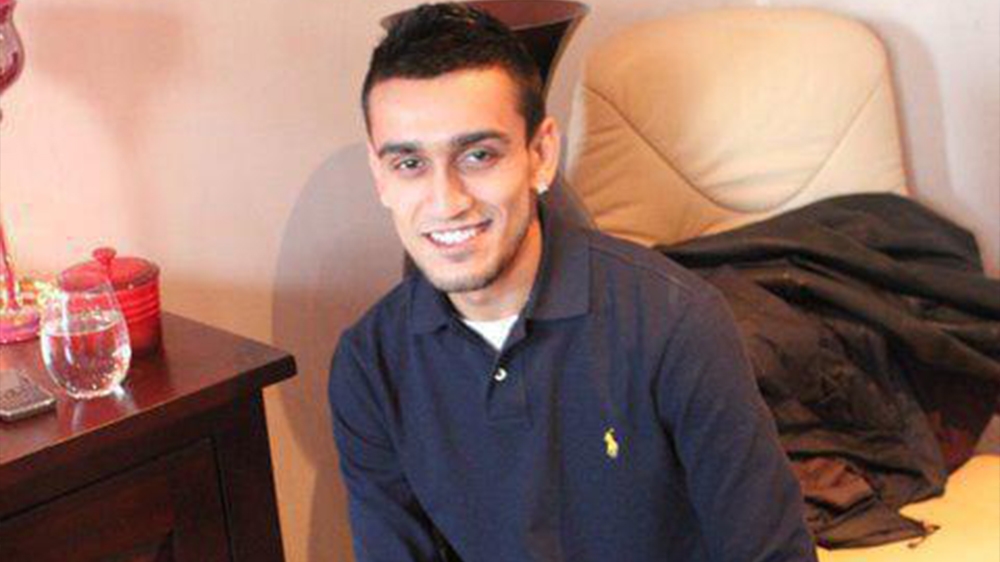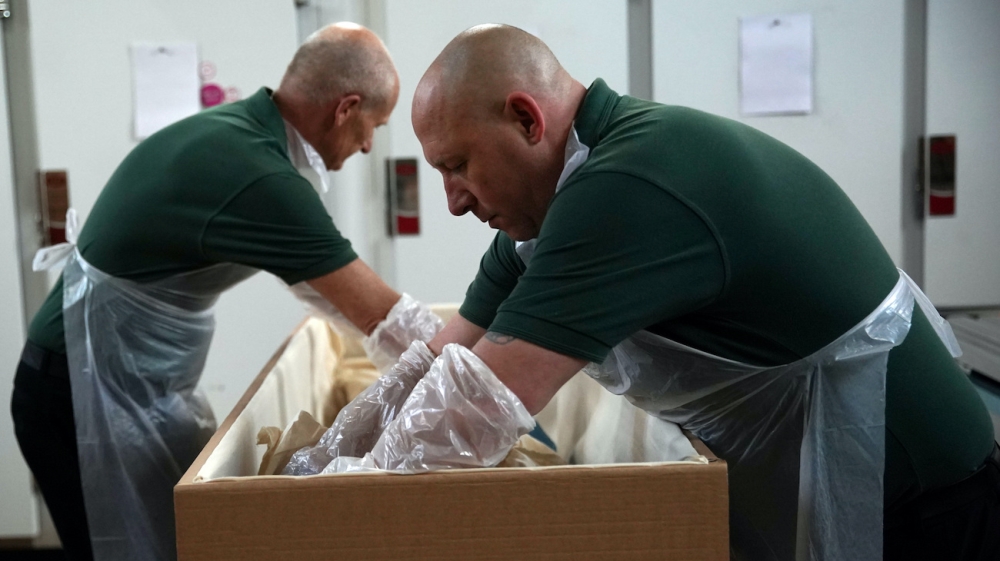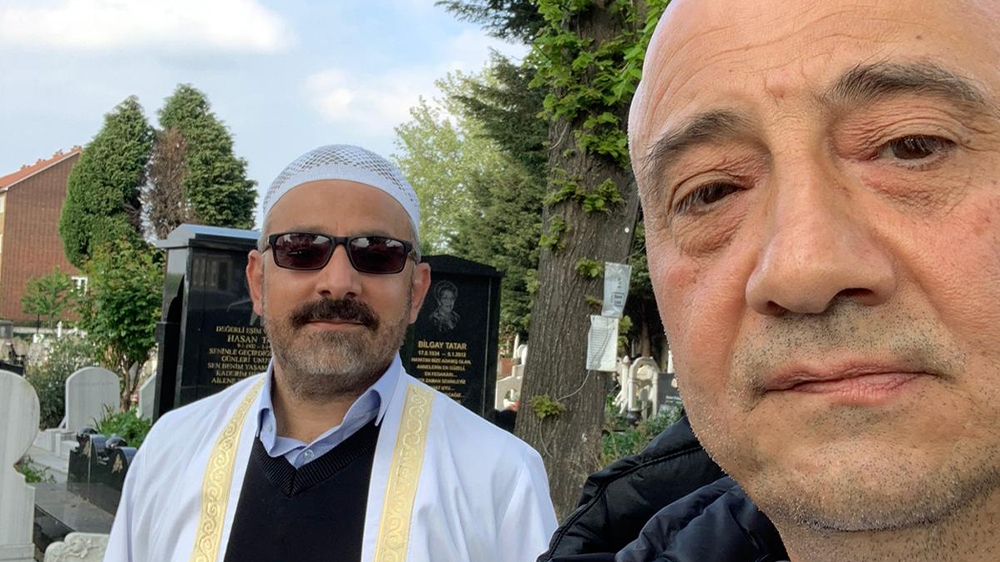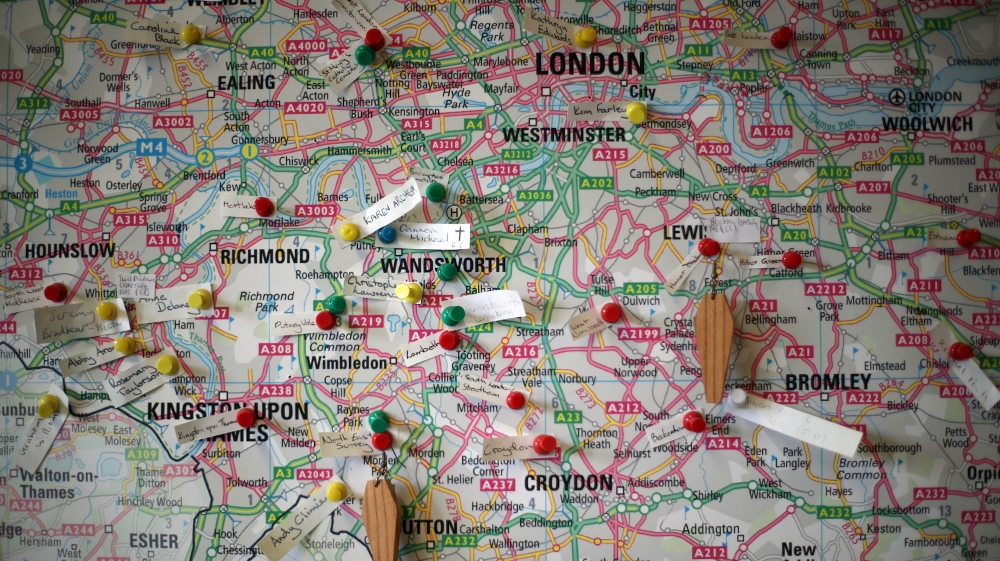The culture of dying
Does the culture we are raised in, or the religion we choose, help us navigate death?

The scent of fresh flowers filled the semi-detached house just outside London.
In the usually spacious living room, the cream sofas had been pushed back against the walls, the stack of “to-do” paperwork and the ornate lamp removed from the coffee table. A large cotton sheet covered the wine-red carpet.
Keep reading
list of 4 itemsMexico’s teachers seek relief from pandemic-era spike in school robberies
‘A bad chapter’: Tracing the origins of Ecuador’s rise in gang violence
Why is the US economy so resilient?
Women filled the room, sitting in clusters on the floor. Some quietly recited passages from the Quran, others picked dried kidney beans from a bowl, saying a prayer for the deceased before transferring them to another – a modified type of abacus.
The weeping, and sometimes wailing, women were served fruit from a large steel tray – bite-sized pieces of apples, oranges and bananas with their peel still on to stop them from browning.
Sabah Chohan remembers the day well. It was the summer of 2011, and she was 17. She had helped prepare the fruit for the mourners gathered in her aunt’s home.
“There were people that none of us [cousins] had ever seen – and I’m sure who had never met Ammar – who would come and wail, with faux grief, really strong, deep cries. Me and my other cousins were left wondering who some of these people were and where these tears were coming from. I remember being annoyed at myself, because everyone was crying so much, but I wasn’t able to shed a tear. I was in shock.”
Ammar Chohan, 20, was Sabah’s older cousin, but they were more like siblings.
Growing up together in Slough, Sabah recalls: “He was at our house almost every day. We had Quran classes together. We’d go to the cinema. He’d pick me up from school, and I used to feel so cool in front of my friends because he was so popular.”
His sense of humour and love of practical jokes made him the “life and soul” of the family, she says.
In July 2011, Ammar and Kameel, Sabah’s older brother, were on a boat trip just off the southern coast of Turkey.
Sabah had recently returned to the UK from her own summer break when Kameel made a frantic call home. Ammar had not resurfaced after his last dive.
The Chohan family desperately wanted to believe that Ammar was playing another of his practical jokes, but by daylight, his body had been found by a team of divers.

Dying young
“It tore the family apart,” Sabah reflects. “None of us were equipped on how to grieve. You expect older people to die, but not a 20-year-old who had his whole life ahead of him.
“I wasn’t able to talk to anyone about how I felt, but I don’t think any of us were. We [Ammar’s older sister and the other cousins] all handled it differently and kind of retreated into ourselves.”
The elders made arrangements to bring Ammar’s body home and prepared for the funeral. Islamic guidelines provided a practical framework to follow in those first days.
Ammar’s home was quickly filled with love. His friends created a space in one of the rooms where they would share stories that momentarily seemed to bring him back to life.
Sabah wanted to join, but cultural expectations meant the females in the household should not be seen sitting in the same room as the young men.
“I wanted to hear the stories, but I also wanted to keep the mums and aunties happy,” says Sabah, who is now 26. “Our culture is very big on respect, so I had to respect tradition, respect the elders.”
“I struggled at the time. I didn’t know how to behave, how to act, there were certain expectations. There is no manual or formula that tells you how to mourn. There was a lot to take in and I felt caught between two cultures, being British and being Pakistani. I didn’t feel my culture helped.”

An unspoken expectation of that culture was for Ammar’s family to be flawless hosts, prioritising the needs of other mourners over their own.
“Even if we are exhausted or mentally not in the right headspace, we had to behave in a certain way … ‘Don’t laugh, it’s disrespectful’, ‘Don’t talk about death and grief and sadness as it’s seen as having a lack of faith in God’s will’.”
But it is not just in Sabah’s culture that death is rarely discussed. Dr Kathryn Mannix, a pioneering palliative care doctor in the UK, writes about the changes in our relationship with death in her best-selling book, With the End in Mind.
A century ago death was part of life, she explains. But with medical advancements, our experience of death has become diluted. “The rich wisdom around death, the vocabulary and etiquette that served us so well in the past, has been lost,” she writes.

Creating culture, finding support
Sabah turned to social media for support, sharing stories about Ammar without any cultural constraints. Every memory she posted was met with likes or shares, which she says validated her grief and gave her the comfort and support she needed.
She also turned to YouTube where she started listening to recitations of the Quran and Islamic teachings, which brought her the peace she was seeking.
In a 2017 study, published in the Journal for the Scientific Study of Religion, Dr David B Feldman tested a theory that those with a religious belief have fewer anxieties surrounding death and grief than those without. He discovered that levels of “death anxiety” were the same in both groups, but that those who believed in God and an afterlife showed greater “acceptance of death, and a greater growth in response to loss”.
Sabah responded to her loss by raising money for disadvantaged communities in Ammar’s name. Giving to charity on behalf of someone who has died is known as Sadaqah Jariyah in Islam – a lasting charitable legacy said to benefit the soul of the departed.
She also trekked across deserts and climbed the world’s tallest mountains, making her realise the vastness of the earth, and her place in it, she says.
“The mighty mountains made my problems seem so small and made me appreciate everything I took for granted,” Sabah reflects.
‘We don’t know how to talk about death’
Although Sabah did not find the comfort she needed within her cultural group, Sarah Harrison* says she admires the “support” offered within some Asian communities at times of bereavement.
When her mum Patricia* died from breast cancer in 2013, she says she remembers a friend visiting and bringing a homemade cottage pie. “It was such a simple gesture, but it meant so much. When I mentioned it to my Asian friends they were so surprised, as in their cultures when someone dies the house is filled with a steady stream of food and visitors – I think we’ve [non-Asian English communities] lost that.”
“We don’t know how to talk about death, and there is a real problem in English society in reaching out.”
Looking at photos of her mother, a former actress, Sarah feels comforted in knowing that she and her younger sister had honoured all of their mothers’ final wishes.
“Mum was such an extrovert, she was this eccentric, bohemian character. She requested a black horse-drawn carriage and for all the mourners to be dressed in black – even though she was one of the most colourful people around. I thought of the theatrics of it all – but when she died, because we had had that conversation, I made it all happen.”
More than 100 mourners packed the Gothic-style church in London, and people remembered Patricia in their own meaningful and creative ways. One friend sang a song Patricia had written, another recited one of her poems, and Sarah delivered the eulogy. “I knew her better than anyone else. I didn’t find it cathartic, but I felt it was important to honour her.”
“It was all very traditional, and the clip-clopping of the horses’ hooves as we went through the graveyard was actually very comforting. The rustling of Bible pages in the wind when the vicar read prayers from it, as we walked towards the grave, was beautiful.
“It was little things like that that I noticed, also older gentlemen tipping their hat as my mother’s carriage passed by – it was a lovely act of respect honouring my mother, and that gave me comfort.”
When Patricia’s coffin was being lowered into the ground, Sarah says she felt strange at the finality of it all. “We threw some soil and two roses on her coffin. I asked if I could fill the grave with soil, and was told no the grave digger would be doing that and the only other community that had requested this was the Ghanaian community. I recently went to a Jewish funeral and we were able to throw some earth on the coffin – it makes a difference.
“It made me wish we had more rituals, a lack of them can leave people sometimes feeling lost.”
Sitting in her sunny London garden, Sarah reflects on how her Christian beliefs helped her understand the dying process, but her culture did not offer the support she was seeking.
“I see death as a transition to the afterlife. When mum was dying, the vicar came to the hospice and he anointed her, we said prayers and ‘May Christ be with you’. It was comforting to her and to me. It made a difference.”
She makes a point to talk to her own children about death, she says.
“I’ve noticed that in English culture, we don’t really expose our young to births and deaths – and I find that sad. How will you understand life if you are not exposed to the cycle of it?”
Adapted funerals
In the midst of the coronavirus pandemic gripping the world today, fulfilling cultural and religious rites around death – as well as being there for the dying – has not always been possible.
In many cases, restrictions have meant people were unable to be with dying relatives.
When Nurten Haddedou’s cousin Keziban Ozdemir died last month from pancreatic cancer, 73-year-old Nurten wanted to be there, to offer prayers, comfort family and share memories, but could not because of the coronavirus restrictions.
“I’d known her all her life and it really upset me not being able to be there. I feel dreadful and still feel guilty. I’m heartbroken.”
Nurten believes it is important to “pay your final respects”.
“Not being able to attend [due to a restriction on numbers attending funerals] has made it more difficult for me to accept her passing as I didn’t get to say goodbye,” she reflects. “I’ve always attended the funerals of friends and family. It’s important, it shows respect for the departed and it’s also a chance to say a final goodbye in person.”

Erkin Guney understands this well. A funeral director and chairman of Masjid Ramadan in north London, he had the sombre task of dealing with 150 Muslim burials in four months.
“At one point we were burying four to six people a day. It was unprecedented, I used to run the largest cemetery in Western Europe and would then only deal with 100 deaths in a year,” he says.
Erkin explains that Islamic funeral rites are “simple but important”.
“You wash the body, wrap it in a white cloth called the ‘kafan’, put the body in an open casket, prayers are recited, the body can be viewed – you take the body to the graveside, and say your final goodbyes.
“In Islam, this journey, the last journey, is the most sacred.”

At the start of the pandemic, with personal protective equipment (PPE) in short supply, confusion over whether the washing and wrapping of the deceased would be allowed and even reports that bodies were being cremated or buried in body bags because of the risk of contagion, Erkin says bereaved families experienced a “disconnect from their spiritual traditions”.
“The absence of these rituals meant families were unable to feel a sense of closure, and these death rituals are hugely important. It is our duty to give each person a dignified sendoff,” he says.
“I had to change the game, I wasn’t accepting this. When I die, this is what I want for myself – wash my body and lay me to rest. This is my duty or otherwise why am I here? We are dealing with families’ loved ones that have died, this isn’t a conveyor belt.
“We knew we couldn’t bury the bodies in 24 hours [as is the tradition in Islam], but the rest we could do. So after bodies had been refrigerated for seven days [to kill any trace of the virus], we washed them, we wrapped them, we held prayers. There was no way we were going to bury unidentified people in body bags.”
Mourning suits were replaced with hazmat suits and Erkin continued his work.
He set up a live stream option for families to watch the whole process online from their homes. “People were now able to say their goodbyes over video streaming, and the deceased had their final rites fulfilled.”
Seeing the death rate go up on the daily news, and facing the bodies of the deceased the next morning was hard to handle. Erkin says he did so with tears in his eyes.
“It doesn’t matter what religion you are, death is a spiritual experience, not religious. Islam is one path to God, but there are many.”

‘Each death is different’
While there are often unspoken guidelines for processing death, does having a more structured approach help us cope better with grief?
Aly Dickinson has been an “end-of-life doula” for six years, and has become known as the go-to person for advice on how to “be” with a bereaved person, among her own friends and family.
An end-of-life doula, sometimes called a death doula, offers emotional, physical and psychological support to the dying and to their loved ones.
“Traditionally … this role was undertaken by a person, often a woman, in the local community,” Aly explains. “As dying has become more medicalised we have become more separated from our dying with most deaths happening in hospitals, hospices and care homes. We have lost the innate knowledge and wisdom to look after our own at end of life.”

By offering practical and emotional support, Aly says she and her colleagues help to “preserve the quality of wellbeing, sense of identity and self-worth [of a dying person] from the moment we are called upon.”
Aly points out that it is important to recognise the personal experience of each individual. “Each death is different – the person is unique, their life is unique and that is reflected in their dying. The conversations, emotions, hopes, fears and concerns are different for each person – there may be some common themes but each individual experience belongs to that person [and] is distinctive.
“I know, from having seen, that death can be a beautiful and peaceful letting go of this life,” she adds.
‘Love, it’s as simple as that’
Ritu Sani, a business consultant in her 40s, wishes she was offered some type of professional support when her father was dying from cancer in 2018.
“I just wanted someone to sit and offer guidance on what the final stages of cancer look like, someone to ask how my dad was feeling, how he felt about death.”
She felt this was not offered by the medical profession.
The support Ritu wanted “has nothing to do with what religion you are – this is about humanity”, she says.

Although Ritu describes herself as spiritual rather than religious, it was her father’s Sikh faith and her mother’s Hindu beliefs that formed the structure of the funeral process. But although her family were enveloped in the care of the Hindu and Sikh communities, she was not sure that this was the kind of “support” she needed.
“I had people coming up to me, telling me how I should be praying, how I should be grieving. And my brother was falling apart, our extended family members and friends were infuriated, they thought as a man he shouldn’t be behaving that way. I didn’t want people coming into our home with judgement.”
“There are different types of mourners, there are those who come out of obligation, have a cup of tea and go, there are those who come to have a snoop and see what’s going on within the family at such a personal time, and there are those who come to give you a hug and bring enough food to last a week, which is welcomed,” she says.
Ritu honoured her father and says she “tried to tick all the boxes” for him by incorporating both Sikh and Hindu traditions. “Both have a different meaning of what it means to die.”
The rituals were spread over 13 days and ended with the final ceremony, scattering her father’s ashes “the last bit of the person’s remains on the earth” in an open water lake, following the Hindu belief of setting the spirit free and returning it to nature.
Looking back, Ritu says her family’s religious traditions helped. “For us as a family, it was cathartic to do this, it was sad and upsetting but was a good way to say goodbye.”
Erkin believes that “at the end, when you lose everything, you get back to your true self [and] faith and culture don’t matter”.
“I have seen every religion’s death rites,” he adds, “and when you’re standing by the grave, saying a prayer or nothing at all, what we all have in common is love, it’s as simple as that.”
*Names were changed to protect privacy of family